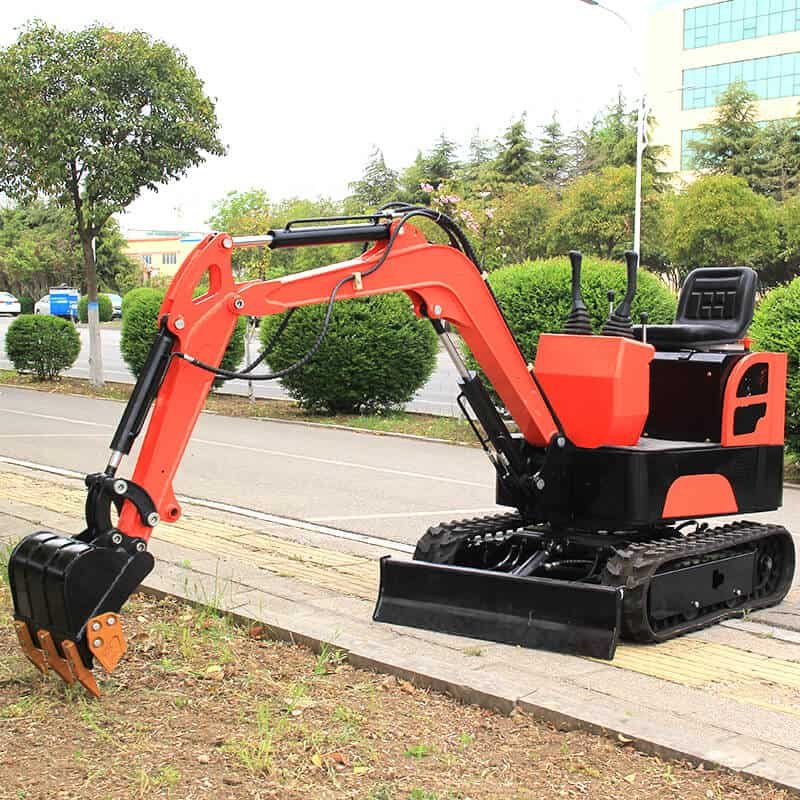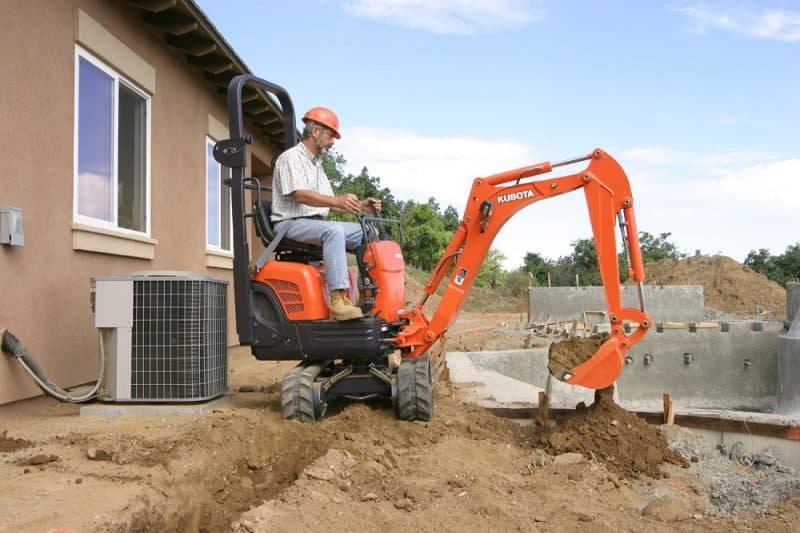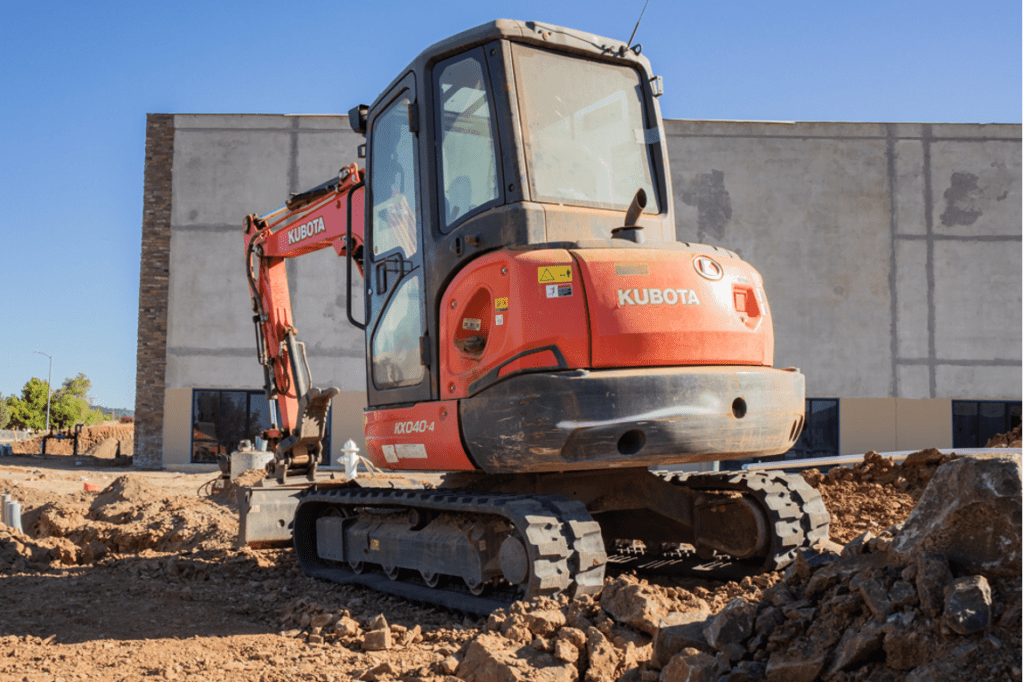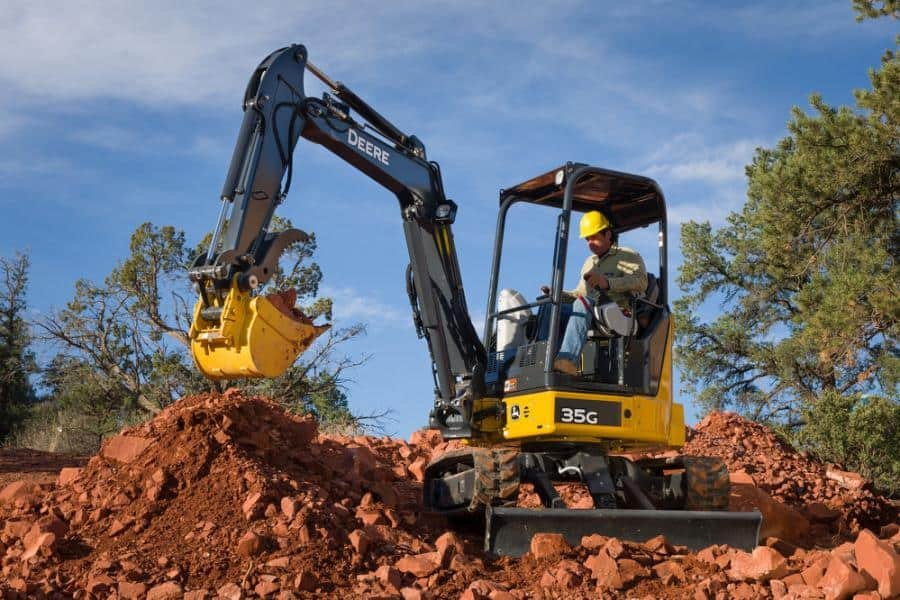Mini diggers are essential machines in the construction industry, thanks to their versatility and ability to access tight spaces. These machines are small in size but mighty in their ability to perform a range of tasks such as excavation, demolition, and landscaping. However, like any other machine, mini diggers can encounter a range of problems that can impact their performance, and it’s essential to troubleshoot these problems promptly to avoid costly delays. In this article, we’ll explore some common problems with mini diggers and how to troubleshoot them effectively.

Common problems with mini diggers
Mini diggers are complex machines with several components that can encounter problems. Here are some common problems that you may encounter while using mini diggers:
Hydraulic system problems
The hydraulic system is one of the most critical components of a mini digger, and any malfunction can impact the machine’s performance. Common hydraulic system problems include slow operation, leaking hydraulic fluid, and overheating. Slow operation can be caused by a faulty hydraulic pump or low hydraulic fluid levels. Leaking hydraulic fluid is usually caused by damaged hoses, worn seals, or loose fittings. Overheating can be caused by a lack of proper fluid circulation or a clogged hydraulic filter.
Electrical system problems
Small diggers are equipped with an electrical system that powers the machine’s starter motor, alternator, and lights. Electrical system problems can cause the machine to fail to start, drain the battery, or cause faulty lights and indicators. Starting problems can be caused by a dead battery, corroded battery terminals, or a faulty starter motor. Battery issues can result from a malfunctioning alternator or electrical system faults. Faulty lights and indicators can be caused by a blown fuse or wiring problems.
Engine problems
The engine is the heart of the digger, and any engine problems can impact the machine’s performance. Common engine problems of the compact digger include starting problems, poor performance, and overheating. Starting problems can be caused by a faulty starter motor or a clogged fuel filter. Poor performance can be caused by a lack of proper fuel or air intake or a clogged air filter. Overheating can be caused by low coolant levels, a damaged radiator, or a malfunctioning thermostat.
Track or undercarriage problems
Mini diggers rely on tracks to move around, and any problems with the tracks can impact the machine’s mobility. Common track or undercarriage problems include uneven track tension, excessive track wear, and damage to the undercarriage components. Uneven track tension can be caused by worn track adjusters or damaged idlers. Excessive track wear can result from improper operation or lack of maintenance. Damage to the undercarriage components can be caused by hitting rocks or debris or overloading the machine.

Troubleshooting mini digger problems
Troubleshooting mini digger problems can be challenging, but it’s essential to identify and address the problem promptly to avoid costly delays. Here are some troubleshooting tips for common mini digger problems:
Hydraulic system troubleshooting
To troubleshoot hydraulic system problems, check the fluid levels and condition and look for leaks and damaged hoses. Also, check the hydraulic pump and pressure relief valve. If the hydraulic fluid is low or dirty, refill or replace it. If there’s a leak, identify the source and replace the damaged hose or fitting. If the hydraulic pump or pressure relief valve is faulty, replace them.
Electrical system troubleshooting
To troubleshoot electrical system problems, check the battery and connections, fuses and relays, alternator, and starter motor. If the battery is dead, recharge or replace it. If there are corrosion or loose connections, clean and tighten them. If there’s a blown fuse or faulty relay, replace them. If the alternator or starter motor is faulty,replace them.
Engine troubleshooting
To troubleshoot engine problems, check the fuel and air filters, spark plugs, and coolant levels. If the fuel or air filter is clogged, replace them. If the spark plugs are worn or dirty, replace them. If the coolant level is low or the radiator is damaged, refill the coolant or replace the radiator. It’s also important to check the oil level and quality regularly and change it as needed.

Track or undercarriage troubleshooting
To troubleshoot track or undercarriage problems, inspect the tracks for wear, damage, and tension. Check the idlers, rollers, and sprockets for damage and wear. Tighten or adjust the track tension as needed. If there’s excessive wear or damage, replace the tracks or undercarriage components.
Preventative maintenance
Preventative maintenance is crucial to ensure the smooth operation of mini diggers and prevent problems from occurring. Here are some preventative maintenance tips:
- Regularly check and change the oil and filters.
- Check and top up the hydraulic fluid levels regularly.
- Inspect the tracks and undercarriage components for wear and damage regularly.
- Check and clean the air filters regularly.
- Check and maintain the battery and electrical connections.
Operator error
Mini digger problems can also be caused by operator error. Common mistakes include overloading the machine, improper use of controls, and not following safety procedures. It’s essential to train operators properly and ensure they understand the machine’s capabilities and limitations. Encourage operators to report any problems promptly to prevent further damage.

Environmental factors
Environmental factors can also impact the performance of mini diggers. Extreme weather conditions, such as high temperatures or heavy rain, can cause overheating, damage to the electrical system, or hydraulic fluid leaks. It’s essential to take precautions to protect the machine from these conditions, such as using proper ventilation or covers.
Replacement parts
When replacing parts for your mini digger, it’s important to use high-quality replacement parts that are compatible with the machine. Using inferior parts or incorrect parts can cause further damage or malfunction. Consult with a qualified technician or parts supplier to ensure you are using the correct replacement parts for your mini digger.
Professional servicing
Regular servicing by a qualified technician can help identify potential problems before they cause significant damage to your mini digger. A professional service can also ensure that all components are working correctly and prevent any unexpected downtime. Schedule regular servicing with a qualified technician to ensure the smooth operation of your mini digger.
By incorporating these additional sections into the article, we can provide readers with more comprehensive information on troubleshooting mini diggers and ensuring their longevity.

Conclusion
Mini diggers are an essential piece of equipment in the construction industry, but they can encounter problems that impact their performance. By understanding common mini digger problems and troubleshooting them promptly, you can avoid costly delays and downtime. Regular preventative maintenance is also crucial to ensure the smooth operation of mini diggers and prevent problems from occurring. By taking care of your mini digger, you can extend its lifespan and ensure its reliability for years to come. If you want to know more information about mini diggers or you want to find a good choice for mini diggers, please contact us.

